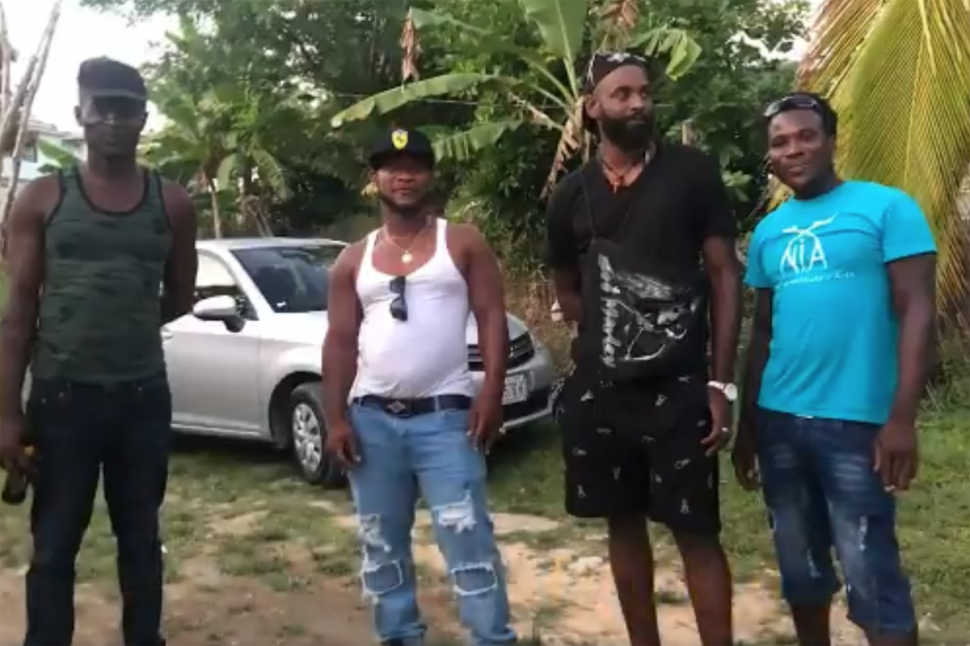(Jamaica Gleaner) The United States Government has moved a motion for the court to dismiss the suit by four Jamaican fishermen who have accused the US Coast Guard (USCG) of holding them captive in inhumane conditions for over a month.
The American Civil Liberties Union (ACLU) in June filed a suit on behalf of Robert Weir, Patrick Ferguson, David Williams, and Luther Patterson in which they claimed they were captured by members of the USCG, stripped naked, given white, paper-thin overalls and disposable slippers to wear instead, and subsequently chained by their ankles to metal cables.
A fifth fisherman, George Thompson, who was also detained, is not a part of the suit.
The fishermen were initially hit with marijuana-related charges, but when the ganja rap collapsed, they were convicted on charges of providing false information to the Coast Guard about the boat’s destination.
In court documents obtained by The Gleaner, the US Government wants the claim dismissed on ‘political question’ grounds, arguing that US courts cannot inquire into and adjudicate the men’s allegations of forced disappearance, prolonged arbitrary detention and their abusive treatment.
It said that the men’s 32-day detention on USCG ships was governed by the terms of the US-Jamaica Shiprider agreement as a part of the 1988 Vienna Counter-Trafficking Convention.
This agreement, the US Government argued, provides no private cause of action to the citizens of one State over and against the other sovereign State.
US GOV’T: COURTS CAN’T DECIDE ON NATION-TO-NATION COMMUNICATIONS
The US Government said the fishermen, through their suit, are challenging the process of enforcing the Convention and the diplomatic negotiations between the US and Jamaica about their detention.
The documents reveal that it took Jamaica 25 days to consent to the men’s prosecution in the US.
The diplomatic options potentially available during the first detention, according to the US Government, are not properly before the Court, such as whether Jamaica could have attempted through diplomacy to specify the conditions of the detention, or could have taken over the detention itself.
Further, under the terms of the treaties, diplomatic solutions are available to settle disputes, including disputes about “any loss or injury” and “any improper or unreasonable action” taken by a party pursuant to the bilateral agreement.
The US Government has also rejected the position that the United States should have brought the men to a U.S. shore during the Jamaican government’s multi-week period of diplomatic deliberation.
It said such inquiry by the Court would be an improper infringement into matters constitutionally committed to the political powers, especially as bringing the four Jamaicans into U.S. territory without the permission of Jamaica could have been a diplomatic offense to Caribbean state.
The US Government asserts that it is not for the Court to decide how the nation-to-nation communications and decision-making should have happened in this case.
The five men were detained after the Jamaican Government granted a waiver of jurisdiction to the US Coast Guard under a 1997 agreement between the two countries, commonly referred to as the Shiprider Agreement.
The original agreement, which represents cooperation between the countries’ anti-drug trafficking laws, did not allow US authorities to detain Jamaican nationals encountered at sea, but a 2016 amendment to Section 20 (Subsection 2) of Jamaica’s Maritime Drug Trafficking (Suppression) Act, which explicitly barred the US Coast Guard from detaining them, was removed.

